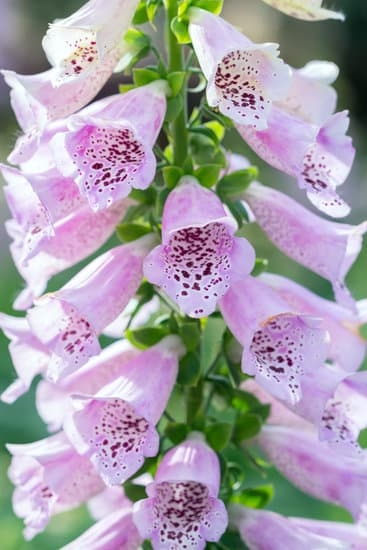Are you looking for creative and sustainable ways to cultivate your garden? Look no further than recycle gardening ideas.
Recycling materials for gardening not only reduces waste but also brings new life and purpose to everyday items. In this article, we will explore the benefits of recycle gardening, how to incorporate recycled materials into your garden, creative ideas for recycled garden containers, DIY recycled garden projects, the best plants for recycle gardening, maintenance tips for a recycled garden, and success stories of recycle gardening in action.
Recycle gardening is an innovative approach to sustainable living that aims to minimize waste while creating beautiful outdoor spaces. By repurposing items that would otherwise be discarded, such as containers, furniture, and building materials, you can transform your garden into an eco-friendly oasis. Whether you’re a seasoned gardener or just starting out, there are endless possibilities when it comes to integrating recycled materials into your outdoor space.
In the following sections, we will delve deeper into the world of recycle gardening, exploring the benefits of this practice and providing practical tips on how to implement it in your own garden. From creative container ideas to DIY projects and maintenance tips, this comprehensive guide will inspire you to embrace recycle gardening for a more sustainable future.
Benefits of Recycle Gardening
Recycle gardening, also known as upcycling in the gardening world, has become increasingly popular among eco-conscious individuals and garden enthusiasts. The practice involves using recycled materials to create sustainable and environmentally-friendly gardens. There are numerous benefits to incorporating recycle gardening ideas into your outdoor space.
One of the primary benefits of recycle gardening is its positive impact on the environment. By using discarded items such as old tires, wine barrels, or plastic bottles as plant containers, you are diverting these materials from ending up in landfills.
This not only reduces waste but also minimizes the need for new resources to be used in the production of traditional garden containers. Additionally, recycling materials for gardening helps to decrease pollution and energy consumption associated with manufacturing new products.
Aside from its environmental advantages, recycle gardening can also be cost-effective. Rather than purchasing brand-new planters or garden decorations, utilizing items that may otherwise be thrown away can save you money while adding a unique and creative touch to your garden space. Whether it’s repurposing old furniture or using mason jars as herb planters, there are countless ways to incorporate recycled materials into your garden without breaking the bank.
In addition to being environmentally-friendly and cost-effective, recycle gardening allows for endless creativity and personalization. From pallet wood raised beds to DIY rainwater collection systems made from used barrels, there are numerous possibilities for creating a stylish and sustainable garden space that reflects your own personality and values.
How to Incorporate Recycled Materials Into Your Garden
Recycling is an important practice that can be incorporated into your gardening routine to reduce waste and create a sustainable environment. Incorporating recycled materials into your garden not only helps in reducing waste but also adds a unique and creative touch to your outdoor space. Here are some simple yet effective ways to incorporate recycled materials into your garden:
- Use old tires as planters for flowers or vegetables
- Create a compost bin using old wooden pallets or barrels
- Repurpose plastic bottles as watering cans or seed starters
- Use broken terracotta pots as markers for your plants
- Transform old furniture such as chairs or tables into decorative garden pieces
Additionally, you can also consider incorporating recycled materials into the construction of raised beds, pathways, and trellises within your garden. Using reclaimed wood, bricks, or stones not only adds character to your garden but also helps in reducing the need for new materials.
Incorporating recycled materials into your garden can not only help in reducing waste but also allows you to get creative with your gardening projects. By embracing these recycle gardening ideas, you can contribute positively towards a sustainable future while enhancing the beauty of your outdoor space.
Creative Ideas for Recycled Garden Containers
One of the most fun aspects of recycle gardening is getting creative with your garden containers. Instead of buying new pots and planters, why not consider repurposing items that you already have or would otherwise throw away? Not only is this an eco-friendly option, but it can also add a unique and charming touch to your garden.
Here are some creative ideas for recycled garden containers that you can try:
- Tin Cans: Rinse out empty tin cans and remove any labels. These can be painted or decorated with decoupage and used as planters for small herbs or flowers.
- Wine Barrels: If you have access to old wine barrels, these can be cut in half and turned into large planters for trees, shrubs, or even a small vegetable garden.
- Wooden Crates: Old wooden crates can make rustic and stylish planters. Line them with plastic or burlap to prevent soil from spilling out, then fill them with your favorite plants.
- Rain Boots: Don’t throw away those worn-out rain boots. Drill some drainage holes in the soles and use them as quirky planters for whimsical touch to your garden.
These are just a few examples of the many possibilities for recycled garden containers. Get creative and see what unique items you can repurpose to bring new life to your garden.
In addition to being environmentally conscious, using recycled materials for your garden containers can also save you money. You’ll be reducing waste while adding character and charm to your outdoor space. So before you throw something away, think about how you could give it a new purpose in your garden. With some creativity and imagination, the possibilities are endless.
DIY Recycled Garden Projects
Upcycled Pallet Planter
One of the easiest and most versatile ways to incorporate recycling into your garden is by using old pallets to create vertical planters. These can be leaned against a wall or fence, filled with soil, and then planted. The slats are perfect for growing herbs, small vegetables, or flowers, and they add a rustic charm to any outdoor space. Plus, utilizing pallets in this way keeps them out of the landfill.
Tin Can Herb Garden
Save up your empty tin cans from canned goods and transform them into an adorable herb garden. Simply clean out the cans, punch a few drainage holes in the bottom, paint them if desired, and then fill them with soil and plant your favorite herbs. These can be hung on a fence or wall using hooks or simply placed on a table or shelf for easy access.
Mason Jar Terrarium
Instead of throwing away old mason jars, repurpose them into self-contained ecosystems. Layer the bottom with small rocks for drainage, then add activated charcoal to prevent mold and bacteria growth. After that, add potting soil and your choice of small plants suitable for terrariums. Once assembled, these adorable mini gardens require minimal maintenance and are great for indoor gardening in small spaces.
By embracing these DIY recycled garden projects along with other recycle gardening ideas, you not only minimize waste but also infuse your garden with character and creativity. Whether it’s finding new life for old materials or transforming everyday objects into something useful for your plants, there’s no limit to what you can achieve with recycled materials in your garden.
Best Plants for Recycle Gardening
Choosing the Right Plants for Recycle Gardening
When it comes to recycle gardening, selecting the right plants is crucial for the success of your garden. Opting for native plants that are well-suited to your local climate and soil conditions can help reduce water usage and maintenance. Additionally, consider choosing plants that are low-maintenance and require minimal fertilizers and pesticides, contributing to a more eco-friendly garden.
Herbs and Vegetables
Growing herbs and vegetables is an excellent way to incorporate recycle gardening into your outdoor space. Not only can you use recycled containers to start a small herb or vegetable garden, but these plants also provide fresh produce for your kitchen. Consider planting herbs like basil, rosemary, and mint, or vegetables such as tomatoes, lettuce, and bell peppers in recycled pots or containers.
Drought-Tolerant Plants
In regions where water conservation is a concern, incorporating drought-tolerant plants into your recycle gardening efforts can be beneficial. Succulents, cacti, lavender, and ornamental grasses are examples of plants that thrive in dry conditions while adding visual interest to your garden. By using recycled materials for these types of plants, you’re not only contributing to sustainability but also reducing the need for excessive watering.
When considering the best plants for recycle gardening, remember to prioritize sustainability and environmental impact. With the right selection of plants suited to your local area and growing conditions, you can create a beautiful garden while minimizing waste through creative use of recycled materials.
Maintenance Tips for Recycled Garden
Recycle gardening is a sustainable and eco-friendly way to create beautiful and productive gardens while reducing waste. Once you have set up your recycled garden, it’s important to consider maintenance tips to ensure that your garden continues to thrive.
One of the key maintenance tips for a recycled garden is to regularly check and inspect your recycled materials. Whether you are using old containers, furniture, or other items in your garden, it’s essential to make sure that they are still in good condition and safe for your plants. Check for any signs of damage, rust, or deterioration, and make any necessary repairs or replacements.
Another important aspect of maintaining a recycled garden is proper watering and irrigation. Since many recycled containers may not have proper drainage holes, it’s crucial to monitor the moisture levels in the soil and avoid overwatering your plants. Consider using self-watering systems or adding drainage holes to your containers as needed.
Furthermore, implementing organic pest control methods is vital to keep a healthy balance within your recycled garden. Avoiding chemical pesticides and opting for natural solutions such as companion planting or homemade sprays can help protect your plants without harming the environment.
Finally, continue to research and educate yourself on new recycle gardening ideas and techniques. Join online communities or local gardening groups to share experiences and learn from others who are also passionate about sustainable gardening practices.
| Maintenance Tip | Description |
|---|---|
| Regular Inspection | Check recycled materials for damage and deterioration. |
| Proper Watering | Monitor moisture levels and consider adding drainage holes if needed. |
| Organic Pest Control | Avoid chemical pesticides and use natural solutions like companion planting. |
Success Stories of Recycle Gardening in Action
Recycle gardening is not just a trend, but a sustainable and environmentally friendly way of gardening that has been gaining momentum in recent years. Many gardeners and communities have been embracing the concept of recycling and reusing materials to create beautiful and productive gardens. These success stories inspire others to follow suit and adopt recycle gardening ideas in their own green spaces.
One successful example of recycle gardening in action is the use of recycled plastic bottles as planters. In urban areas where space is limited, people have taken to suspending layers of plastic bottles filled with soil to grow herbs, flowers, and even small vegetables. This not only maximizes space, but also reduces plastic waste and brings greenery to concrete jungles.
Another inspiring success story comes from community gardens that have been built using reclaimed wood pallets. By repurposing these pallets into raised beds, gardeners are able to grow fresh produce while keeping unwanted materials out of landfills. These community gardens not only provide nutritious food for residents, but also serve as a gathering place for the community to come together and learn about sustainable gardening practices.
In addition, many individual gardeners have found creative ways to incorporate recycled materials into their landscaping projects. From using old tires as colorful planters to repurposing broken ceramics into mosaic stepping stones, these individuals are proving that there are endless possibilities when it comes to recycle gardening ideas. The success stories of these innovative gardeners showcase how anyone can make a positive impact on the environment while enjoying the benefits of a beautiful and productive garden.
Conclusion
In conclusion, recycle gardening is a fantastic way to not only reduce waste but also create a beautiful and sustainable garden. By incorporating recycled materials into your gardening practices, you can contribute to a healthier environment while enjoying the benefits of a thriving garden. From utilizing old containers and materials to embarking on DIY garden projects, there are countless creative ideas that can be implemented to embrace recycle gardening.
One of the key benefits of recycle gardening is the positive impact it has on the environment. By reusing materials that would otherwise end up in landfills, you are minimizing waste and reducing your carbon footprint. Additionally, recycle gardening encourages innovation and creativity, as it challenges individuals to think outside the box when it comes to creating garden spaces.
Furthermore, embracing recycle gardening not only benefits the individual but also contributes to a greater movement towards sustainability. As more people adopt recycle gardening ideas and practices, we move closer to a future where communities prioritize eco-friendly initiatives.
With proper maintenance and care, your recycled garden can serve as an inspiring example of how simple yet impactful changes can make a difference for our planet’s future. So let’s all join in and embrace recycle gardening for a sustainable future.
Frequently Asked Questions
How Do You Recycle Garden Items?
Garden items can be recycled by using composting to break down organic materials like leaves, grass clippings, and plant trimmings into nutrient-rich soil. Additionally, plastic pots and containers can be reused or taken to a recycling facility.
What Is Upcycle Gardening?
Upcycle gardening involves repurposing old or unused items into creative and functional garden tools or decor. Examples include turning old tires into raised beds, using pallets for vertical gardens, or transforming broken terracotta pots into mosaic planters.
What Can I Do With Vegetable Garden Waste?
Vegetable garden waste can be utilized in various ways, such as creating compost for future plantings or feeding it to livestock if appropriate. Some vegetable scraps can also be used to regrow new plants, while larger waste can be shredded and used as mulch.

Welcome to my gardening blog! I am passionate about plants and enjoy sharing my knowledge and experiences with others. In this blog, I will write about everything related to gardening, from tips on how to get started to updates on my own garden projects.





